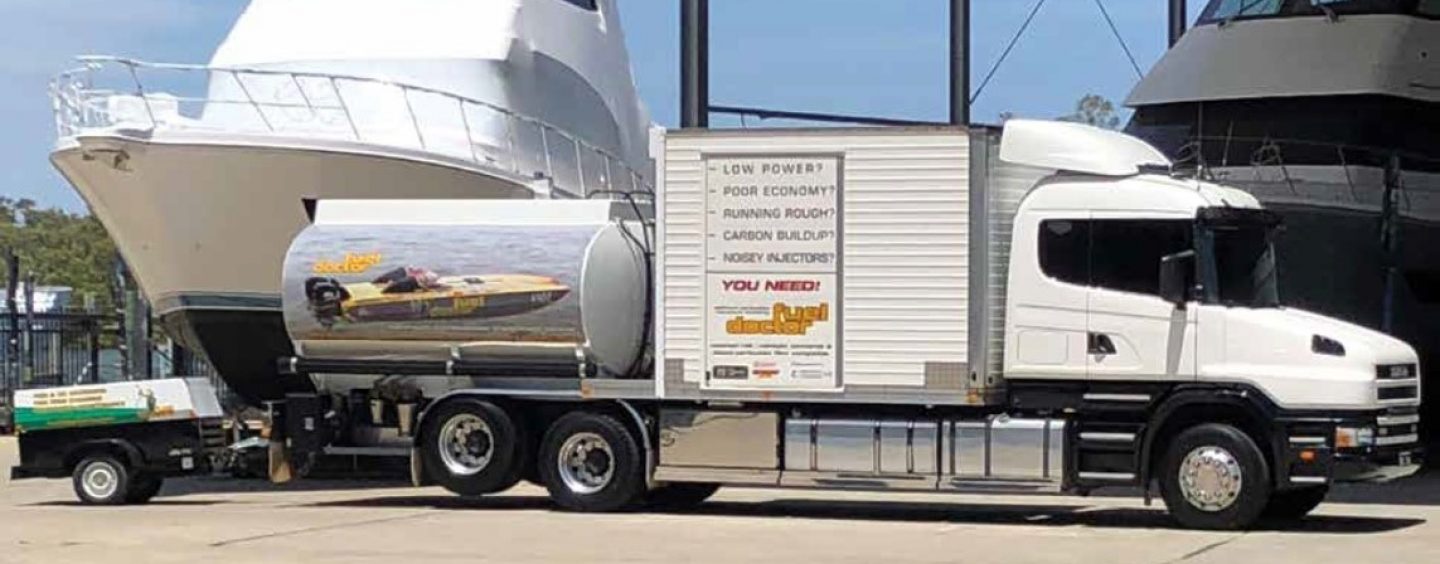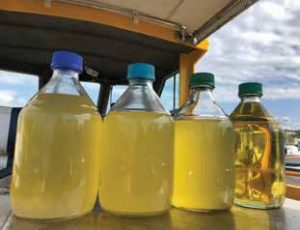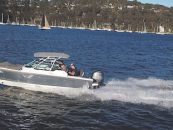With over three decades of unrivalled expertise in industrial and commercial fuel tank cleaning, Fuel Doctors continues to lead the charge in addressing fuel contamination challenges that can wreak havoc on marine vessels.
THE SILENT CULPRIT: CLADOSPORIUM RESINAE
In the realm of maritime enthusiasts, there is a silent but destructive menace known as Cladosporium Resinae, affectionately referred to as ‘Black Death’ by the marine industry. This unwelcome Latin parasite thrives on your fuel, and its detrimental impact can be financially crippling. Premature and catastrophic damage to fuel pumps and injectors can result in thousands of dollars in repair costs. The issue is further compounded by the high expenses associated with cleaning fuel tanks that were never designed with easy access for maintenance.
THE SCIENCE BEHIND CLADOSPORIUM RESINAE
Cladosporium Resinae is born from air-borne soil spores, attracted to hydrocarbon fuels and entering fuel tanks through vents. Any exposed surface within a fuel tank, not submerged in fuel, heats up during the day, allowing spores and moisture to escape through the vent. Conversely, at night, the tank sucks in spores and condensation. These spores lie dormant within the fuel until they encounter water, which provides the oxygen needed for germination. Once activated, they convert minerals and trace elements in the fuel into yeasts, serving as their sustenance. Cladosporium Resinae, akin to brewer’s and baker’s yeasts, thrives in the hightemperature environment created by diesel engines. This environment provides the perfect breeding ground for colonies of fungal material to flourish and develop into dense, sticky mats.
FUEL CONTAMINATION: A COMMON CHALLENGE
While most fair-weather sailors may never encounter Cladosporium Resinae, those venturing into turbulent waters have stories to tell. Changing blocked fuel filters, coupled with the sweltering heat of an engine room and a vessel at the mercy of wind and currents, can lead to a stressful experience. To make matters worse, the frustration and mistrust of the second mate can compound the issue.
ADDRESSING FUEL CONTAMINATION
Dealing with fuel contamination typically involves two approaches. One method is administering chemicals into the tank in an attempt to rectify the issue, while the other is seeking professional fuel polishing services.
THE PITFALLS OF FUEL POLISHING
However, it’s important to note that Cladosporium Resinae feeds on minerals and trace elements present in hydrocarbon fuels. A staggering 99.9% of additives claiming to resolve the problem are hydrocarbon-based. Consequently, introducing secondary hydrocarbons to your tank inadvertently supports the proliferation of Cladosporium Resinae. Fuel polishing, which involves the suction and return of fuel through a filter system, often falls short. Filters are primarily designed to capture solids while allowing liquids to pass through. Given that Cladosporium Resinae-contaminated fuel is predominantly liquid, including water and Cladosporium Resinae, it easily bypasses the filters.
THE PHYSICS OF CLADOSPORIUM RESINAE
Cladosporium Resinae has a similar physical density to fairy floss, being extremely lightweight and adhesive. As a result, it adheres to the walls, baffles, and floors of fuel tanks. When the vessel encounters rough seas, clusters of Cladosporium Resinae can wash back into the fuel (both diesel and petrol), with some making its way into the fuel filter. During mooring, where there is minimal agitation within the tank, Cladosporium Resinae reattaches its sticky, slimy mass to the tank’s surfaces, rendering it inaccessible to fuel polishing.
SOLUTION TO FUEL CONTAMINATION
Fuel Doctors, with three decades of invaluable experience combating Cladosporium Resinae, is your trusted partner in overcoming fuel contamination hurdles. We provide the ultimate advice, service, and proprietary chemical solutions to ensure the most effective resolution for your fuel tank cleaning needs.
For more information contact www.fueldoctors.com.au
Published in print January-March 2024




























